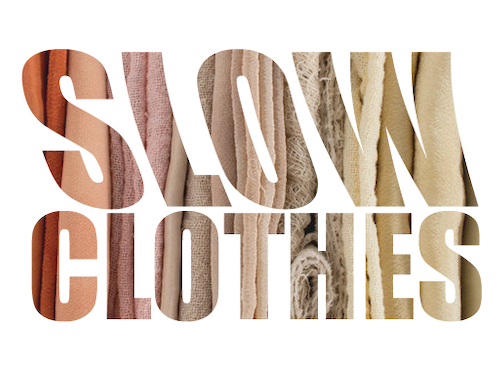
Wise Organizers: A Q&A With Organizing Pros, Part 1
We are doing a series of Q&As with members of Minnesota’s NAPO chapter. This article is the first in the series.
Maybe you’re going through an overflowing closet in your tiny apartment. Or your desk is acting as a place to pile your mail as you walk in the door from classes. Maybe, next semester is so loaded you don’t know how you’ll manage.
Disorganization is an easy cycle to fall in to, but it doesn’t have to be. If a little motivation to fix the problem just isn’t gonna cut it, a little outside help isn’t too hard to find. Thanks to the National Association of Productivity and Organizing Professionals, you can get an outside look on which items to get rid of, how to stay organized when you can’t seem to keep your head on straight and more. Minnesota’s chapter has been around for 25 years, leaving us with a whole directory of people to reach out to, each with their own specializations–whether it be time management, downsizing or virtual organizing.
Sheila Dingels has had her business, Successful Simplicity, for 15 years now, specializing in paper management, task and time Management, closet design, clutter control, coaching, eco-organizing, general home organizing, home offices, kitchens, unpacking from a move and more. She’s a member of NAPO’s Golden Circle, which recognizes her with very high level of expertise in organizing.
We spoke with her to get a better sense of what NAPO is, and how she and other organizers can make a difference in our daily lives.
Q: I’ve never heard of an organizing business. How did you discover the industry?
Sheila: The organizing profession as a whole has been around for decades. What happened is it originally was more established on the east coast and the west coast, and it slowly migrated towards the Midwest.
Our chapter was founded 25 years ago, it’s our 25th anniversary this year. We’ve been around a long time. I’ve had my business for 15 years now. I first discovered this profession by seeing a show on Home and Garden network (HGTV), and that people were out there doing that. That people were out there doing that and I just discovered it. The profession has been around for longer than people realize.
Q: I found you through the website of the National Association of Productivity and Organizing Professionals. Can you tell me about that organization and how important it is to be certified through them for your profession?
Sheila: There are 2 different things. The National Association of Productivity and Organizing Professionals has been around a long time, so they are the governing body for the organizers who do this nationally, but we also have state chapters. And so the Minnesota chapter is the regional chapter for Wisconsin, Iowa and North and South Dakota as well. What that organization does for us as professionals is it provides us networking opportunities to collaborate with other people who have their own organizing businesses as well. So that we can tap into other professionals when we don’t necessarily know the answer to a question, or we’re looking for a specific resource, things like that. Nationwide, we can post a problem or a question and be able to get feedback around the country from people. It provides us ongoing educational opportunities. At the national level we have an annual conference that happens.
At the state level, we have monthly meetings. So we have that again – provides us an opportunity to network with each other but also we have speakers, that come in and provide information on specific topics. The other thing that is important about the organization is that any of us that belong to it agree to adhere to a code of ethics, in terms of how we manage our client relationships. It relates to client confidentiality, and just kind of the ethical relationship that we have with the people that we work with. Being certified is something that happens separately if you choose to do that with the organization. They have a certification program, but that’s an optional thing that organizers can opt in to. It’s not an automatic thing that when you become part of the association.
Q: What is your everyday like?
Sheila: My every day is extremely different. So on any given day, I may have one client or two clients or no clients. But – you probably saw on our website – we have various areas of expertise and specializations that we all work in. on any given day, I may be working with someone in their home office doing paper management. I might be working with them on doing time management and how to be productive and get the things done that they need to be getting done. Or I might be helping them figure out laundry and meal planning, or I might be working in their bedroom closet with them. Every day is totally different and unique based on who it is that I’m working with on that given day.
Q: You were in social work before starting your own professional organizing business. How did you make that switch?
Sheila: When I was doing the social work, it involved a lot of evening and weekend work, because I was meeting with families, and I was needing to go to where people were, and it was just a little difficult to keep up doing that work when I had my own family. So I gradually transitioned. I continued to do some social work, while I was getting my own business off the ground. I was really looking for some additional flexibility in my own personal life and what was going to work best for my family. And so that seemed like that was a good fit for me because I’ve always had some natural skills and abilities related to seeing the big picture and figuring out the puzzles and seeing what needs to happen to make things work. Getting into the field of professional organizing was a great transition.
Q: Why should someone hire an organizer?
Sheila: Well, it depends on what brings people to the tale. A lot of times it’s a life circumstance that creates the need for services. Someone might be living in a small house and they’re expecting a baby, and they need to figure out how to make their spaces work more efficiently because they’re tight on space. A lot of time nowadays older people are looking to downsize, and they feel overwhelmed of having a lifetime or accumulation of items and they’re not sure how to start. So a lot of times it comes out of feeling overwhelmed or feeling like they don’t have the knowledge or the connections, like how do I make my bedroom closet work better, like I think I need a bedroom closet system but how would that work? It depends. What we really bring to the table is new ideas and fresh perspective. Having worked in this profession or so long we know the resources that are out there and we have business partners, we have closet companies people that we work with. We can really ease that process for people.
Q: Any tips for college students on how to stay organized?
Sheila: Keep on top of your busy class schedule and project due dates with a task management app like Any.do. It has features for lists, calendars, reminders and planners. Also, find an app you like to help track the shared household bills, chores, grocery lists, etc. with your roommates, like Fair Share or HomeSlice.










No Comments